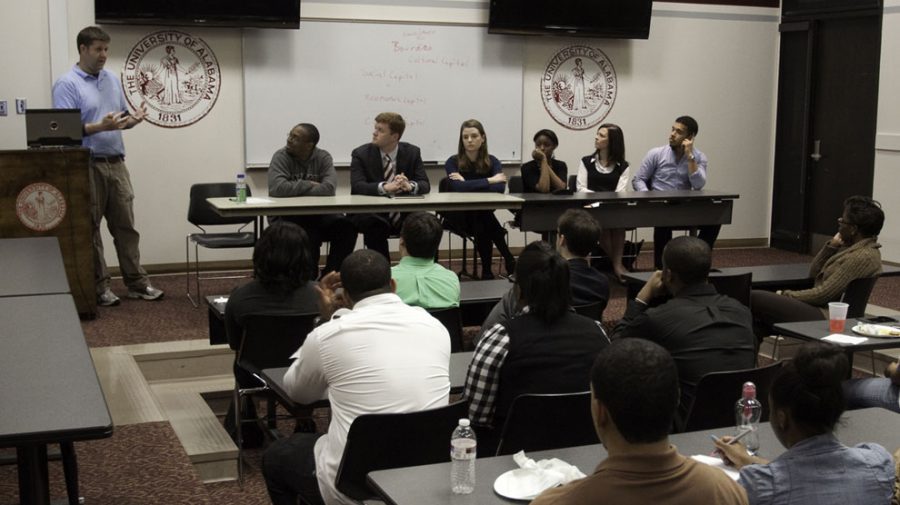On Wednesday night, the Bryce Lawn Hall Council in association with the NAACP presented “The Elephant in the Room,” a forum for discussing inequalities and how they affect the University of Alabama.
The forum began with a lecture by UA professor Ross Bryan on the topic of racism. He talked about the origin of the term “race” and how early notions regarding a skin-race connection had been discredited.
“In 1998, the American Anthropological Association put out a statement, and in that statement they said ‘Sorry, race is completely made up,’” Bryan said. Still, a decade later, it is obvious that racism exists on a large scale.
“We are here talking about race because even though it is made up, it’s very real in its consequences,” he said.
Some of the consequences of being non-white on the UA campus include fewer opportunities to participate in things like greek life, he said.
“Here at the University of Alabama, we don’t like to talk about these things out loud,” Bryan said.
Following the lecture, the forum showed a short video in which various people from across campus had been asked to state their viewpoint about the definition of race and what it meant to UA students.
A six-member panel, including SGA President James Fowler and Justin Zimmerman, who recently made news when he was made the target of a racial slur, answered pre-submitted questions and gave their insight.
When asked what could be done to resolve the issues of inequalities on campus, Fowler likened those who have racial biases to being in a bubble. “When students come to UA, they go straight to their bubble,” Fowler said. “The way to take care of this problem is to get leaders of the different bubbles together.”
Students chimed in with their ideas and viewpoints on how race relations could be improved.
“I would like to see us have more unity and come together more often than we do,” said Kayla James, a sophomore majoring in business and finance. In addition to race, sexism and inequalities between greeks and independents were addressed.
“In order to create more campus unity, the greek community needs to work to change its stereotypes,” said one panel member. “Leaders of the greek organizations need to let their people know that racism isn’t what they stand for.”
The audience also spoke of the inequalities that often exist between those who are in a fraternity or sorority and those who choose not to be.
“Once you become greek, you look down on people who are non-greek,” said audience member Sky Diggs, a senior majoring in English and theatre.
Audience members all spoke of their desire to talk about the issue rather than let it be an “elephant in the room” that continues to burden the student body.
“I think it’s time we come together and talk about it, not only black people but white people, too, and try to eliminate some of the prejudice,” said Adrian McCollum, a senior majoring in social work.










